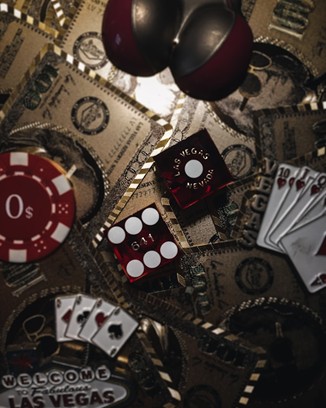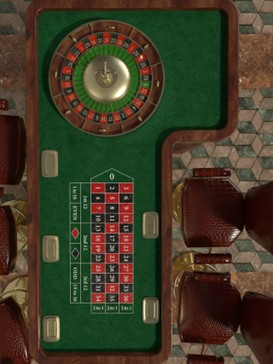
Table games have long been a central element of entertainment, engaging players with a blend of skill, luck, and strategy. From the high-stakes games enjoyed by royalty to the contemporary excitement of casual gaming, the history of gambling offers a captivating glimpse into human culture, creativity, and the pursuit of both enjoyment and fortune.
The following article explores the origins and evolution of three of the most iconic table games: blackjack, poker, and roulette. We’ll discuss how these games have adapted over the years, responding to societal shifts, and how they remain integral to entertainment today, whether at casinos in Kansas or other gaming destinations worldwide.
Blackjack, or "21," is one of the most popular card games worldwide. Its exact origins are somewhat mysterious, but historians generally agree that the game’s roots trace back to French gambling games in the 17th century. The game was originally known as "Vingt-et-Un," which translates to "twenty-one." It was first played in French casinos, where the rules resembled the modern version but without the same widespread appeal.
In the early days, Vingt-et-Un was played with a deck of cards, and the goal was the same: to reach 21 points without going over. The game’s structure was simple, but it wasn't until it crossed the Atlantic to America that it began to evolve into the game we know today.
When Vingt-et-Un made its way to the United States in the 1800s, it underwent significant changes. The American version introduced the concept of the "blackjack" - a special hand that consisted of an ace of spades and a black jack (the jack of spades), which paid a bonus to players who achieved it. This unique rule created the modern game’s name, "blackjack."
Over time, the game gained immense popularity, particularly in Nevada’s early gambling scene. Blackjack’s simple rules and the potential for strategic play, including card counting, attracted gamblers of all types, leading to its expansion beyond elite clubs and into the mainstream. Today, blackjack is played in countless locations around the world, and its appeal remains timeless due to its blend of luck and skill.
Poker is one of the oldest and most enduring card games. The origins of poker are often debated, but most historians agree that the game evolved from a variety of European and Persian card games. One theory posits that poker was influenced by the French game Poque, which itself was derived from a Spanish game called Primero. The game spread through Europe and eventually made its way to the United States with French settlers.
Poker's popularity surged in the United States during the early 19th century, particularly in the American South and along the Mississippi River. As riverboats made their way up and down the Mississippi, poker games became a staple of the social life on these boats. It was during this period that many of the modern rules and variations of poker were established.
One of the most significant developments in poker's history occurred in 1830, with the introduction of the 52-card deck, which replaced earlier versions that used fewer cards. This change provided more opportunities for strategy and bluffing, further cementing poker’s place as a skill-based game.
Poker continued to evolve throughout the 20th century. In the early days, the most popular version was five-card stud, a simple yet exciting form of the game. However, as poker’s popularity spread, new variations emerged. In the early 1900s, Texas Hold'em was developed in the state of Texas, and it soon became the most popular form of poker worldwide. The introduction of community cards allowed for a wider range of strategies, making Texas Hold'em a more dynamic and strategic game.
By the 1970s, poker began to receive national attention, particularly with the advent of the World Series of Poker (WSOP). The WSOP brought poker into the mainstream, and television broadcasts of the event further fueled its growth. The televised poker boom in the early 2000s, spurred by online platforms like PokerStars and Full Tilt, helped poker evolve into a global phenomenon.
Today, poker is played globally, both in physical venues and online platforms. The game has retained its essence, but technology has created new ways for players to engage. Online poker tournaments offer players the chance to compete with others around the world, and live streaming platforms have allowed viewers to follow professional poker players in real-time.
Poker also continues to adapt with new variations, including fast-fold poker and other novelty formats that provide unique experiences for players. Poker's adaptability ensures it will remain a staple in the world of table games for years to come.

Roulette is often referred to as the "game of chance," and for good reason. The origins of roulette trace back to 18th-century France. The game is thought to have evolved from earlier wheel-based games, with the name "roulette" derived from the French word for "little wheel." The game was invented by French mathematician Blaise Pascal in the 1650s while he was attempting to create a perpetual motion machine. Though Pascal’s experiment failed, it laid the groundwork for what would become one of the most iconic gambling games in history.
The version of roulette that most closely resembles the modern game began to take shape in Paris in the late 18th century. French aristocrats quickly embraced the game, which featured a wheel divided into 37 slots numbered from 0 to 36. The introduction of the single zero helped to make the game more favorable to the house and ensured that roulette became a staple of French gaming.
When roulette made its way to the United States, it underwent significant modifications. In 1835, the American version of the game introduced an additional "double zero" (00) on the wheel, bringing the total number of pockets to 38. This change gave the house a higher edge and set the stage for American roulette’s unique style, which remains in use today.
Over the years, roulette has retained much of its original form, but innovations in technology and gaming systems have added exciting new dimensions to the game. Online roulette has become a popular alternative to traditional roulette, offering various versions such as European, American, and French roulette, often with the option of playing with live dealers. Virtual roulette and its many variations provide players with new ways to experience the excitement of the wheel from the comfort of their homes.
Table games like blackjack, poker, and roulette have stood the test of time due to their rich histories, the evolution of their gameplay mechanics, and the way they adapt to the times. From their origins in Europe to their widespread global popularity, these classic games continue to evolve while retaining the elements that made them beloved in the first place.
As technology continues to change the way we interact with games, it will be interesting to see how these classics continue to evolve. Whether played on a traditional table or through an online interface, the history of these games serves as a testament to the enduring appeal of games that combine skill, luck, and the thrill of competition.